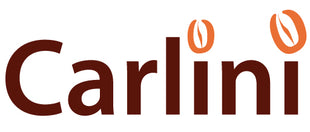Introduction
Not everyone drinks coffee for the caffeine. Many enjoy the taste, the warmth, and the comfort it brings to daily life. For some, cutting back on caffeine means reaching for decaf, but regular decaf can leave something to be desired. It often goes through a handful of steps before reaching your cup, and not all those steps are as simple or natural as you might expect.
This is why chemical free decaf coffee is getting more attention across Australia. It is roasted with care, like other premium coffees, but the decaffeination process skips synthetic chemicals completely. Water-based filtering methods pull out the caffeine while leaving much of the bean’s character untouched. As more Aussies look for choices that land closer to nature, this type of decaf coffee is turning heads.
What Makes a Decaf "Chemical Free"?
Every decaf starts the same way, picked and sorted like regular beans. The main change comes when the caffeine needs to be removed. Here is where the different processing methods come into play.
A lot of traditional decaf uses solvents, such as methylene chloride or ethyl acetate, to strip the caffeine. These chemicals are washed out later, but not everyone feels great about their beans having ever been through that step. For those who want something closer to nature, chemical free decaf options are on the rise.
The Swiss Water Process leads the way in chemical free decaf coffee. It uses just water and carbon-based filters to gently remove caffeine. Beans soak in water to pull out caffeine and some flavour. The filtered water is then saturated with coffee taste but free of caffeine, and new beans are added. That means the original flavour profile stays mostly intact while only the caffeine says goodbye.
Calling a decaf "chemical free" means no synthetic solvents touch the beans at any stage. The process is still a treatment, but the only things the beans interact with are water, time, and natural filters. This method shapes not just the production, but shapes the taste and the comfort some coffee drinkers feel when reaching for a cup.
Carlini sources Swiss Water Process decaf beans, roasting them fresh in Melbourne and shipping quickly to keep quality high for customers across Australia.
Taste Differences You Can Actually Notice
Coffee is about taste. For many, that is where decaf can let you down. Processing with chemicals can flatten out the flavour, leaving the cup thin or with a strange aftertaste. It makes sense, since coffee beans are easily altered by harsh methods.
Chemical free decaf coffee keeps more of the original coffee body and brightness. When water-based decaf methods are used, the result is a smooth, clean taste with a finish that feels natural and unforced. No sharpness, no chemical edge.
For example, a long black brewed with chemical free decaf keeps its clarity and natural sweetness. It feels soft, not watery or sour. If you use it for a flat white, the milk pairs nicely so the cup tastes full and balanced, not thin or bitter.
Some everyday coffee drinkers say the difference is small, while others feel chemical free decaf stands out for its gentle, rounded profile. Either way, going chemical free means more cups that feel true to regular coffee, minus the caffeine.
Better for the Environment, Better for You?
Skirting chemicals may help the environment, too. Decaf methods that use only water tend to create less potentially harmful waste. There is no worry about solvent run-off, and the risk of traces ending up anywhere is low. It is the kind of production choice that can feel right for people thinking about their whole coffee journey, from crop to compost.
Choosing chemical free decaf coffee is about awareness, not claims of health or miracle fixes. Some people simply want the peace of knowing their cup was made with a gentle process, fewer steps, and natural materials.
Australian coffee lovers already have access to good, cleanly processed coffees through local roasters who prioritise freshness and sustainability. The move to chemical free decaf matches that interest in doing better, both for the planet and for personal taste. The process is simple, honest, and reflects a growing preference for less-is-more.
Is It Worth Making the Switch?
Already drinking decaf? Swapping to chemical free decaf coffee is as easy as ordering a new bag. These beans work in nearly any espresso machine or home brewer, so there’s no need to change your routine. From office drip brews to home espresso machines, chemical free decaf can step in without fuss.
There are Australian roasters who have made chemical free decaf easy to find, with fresh options available online and for delivery nationwide. Just pop the beans in your regular setup, and taste the change for yourself. No new equipment or complicated steps—just a chance to enjoy a gentler, truer cup.
If you are sensitive to caffeine or just like coffee for the flavour, making the switch might keep your ritual intact without the jitters or crash.
A Cleaner Brew, Without Compromise
Chemical free decaf coffee is not a trend for a tiny group of enthusiasts. It is a solid choice for anyone wanting great flavour and less processing. If you want to keep your coffee ritual feeling easy, safe, and natural, chemical free decaf is a step in that direction.
With spring on the way across Australia, it is a fitting time to freshen up what’s in your mug. A decaf that skips the synthetics offers a clear, honest flavour and a sense of lightness in your daily coffee. All comfort, all taste—no corners cut.
Looking for something smooth with zero fuss? Our chemical free decaf coffee is roasted right here at Carlini and lets you enjoy full flavour without the extra caffeine. It’s a simple way to keep your brew tasting great—whether you're kicking back at home or pouring shots behind the counter.

